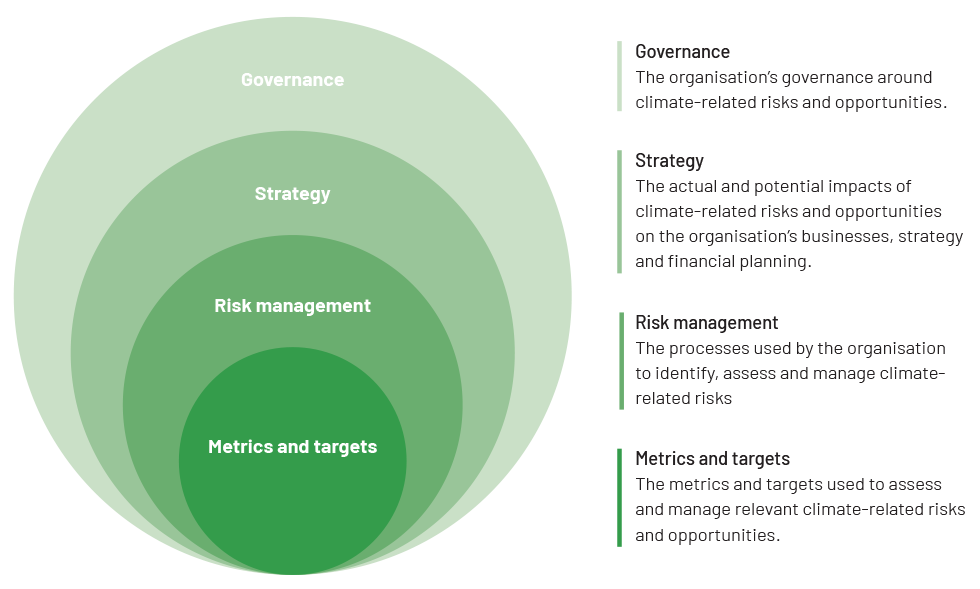Introduction
Introduction
Environmental, social and governance (ESG) initiatives have become an essential consideration in global investment and financing decisions, as well as in evaluating corporate performance, and China is in the process of harmonising its ESG reporting system with global practices. As the world’s second-largest economy, China’s new ESG disclosure regulations are expected to drive standardisation and consistency in ESG disclosure globally, and its approach to ESG reporting is expected to have a significant impact on the trends of its domestic economic landscape and the direction of international investment flow.
China stock exchanges finalise mandatory sustainability reporting requirements
On 12 April 2024, the Shanghai Stock Exchange (SSE), the Shenzhen Stock Exchange (SZSE) and the Beijing Stock Exchange (BSE) issued Guidelines on SelfRegulation of Listed Companies – Sustainability Report (Trial); these have been implemented since 1 May 2024. According to the Guidelines, listed companies should disclose their 2025 sustainability reports for the first time no later than 2026 during the reporting period. It also encourages the early adoption of the annual reporting period ending 31 December 2024. The Guidelines are the first set of mandatory sustainability report disclosure regulations for listed companies in China. They fill the gap in ESG disclosure standards at the regulatory level and are regarded as a milestone in the field of sustainability in China.
Framework of the newly released Guidelines
The structural framework of the Guidelines is consistent between the three exchanges, with six chapters and 63 articles for the SSE and SZSE and six chapters and 62 articles for the BSE. In terms of framework, all of them refer to the four-pillar framework of the Task Force on Climate-related Financial Disclosures (TCFD): governance, strategy, risk management, and metrics and targets.

Opportunities and challenges in China’s ESG landscape
Enhancing ESG performance and measurement
Transparency in the realm of corporate ESG disclosure is paramount. Unlike in many developed countries where ESG disclosure is driven by investor demand, policy regulation and supervision in China are powerful incentives for domestic organisations to engage in ESG investment and disclosure. While China has its own nuanced ESG frameworks, efforts are being made to harmonise them with international baselines so that ESG reporting becomes more pertinent to investors on a global basis.
With regulatory advances, China is increasingly recognising that ESG factors are drivers of long-term value creation. As ESG-themed investment gains momentum, Chinese companies are increasingly realising that sound ESG practices can deliver better financial performance and capture global capital. As both the government and the corporate sector recognise the indispensable role of ESG in sustainable development, China’s ESG reporting is certain to play a critical role in shaping its economic future and its position in the global investment landscape.
International ESG standards and local adoption with “Chinese characteristics”
A challenge facing foreign investors and Chinese companies is balancing adoption of internationally recognised ESG standards with adjusting to the local context. Although China is working to create an ESG framework that is adapted to the domestic environment, harmonising it with global standards remains necessary. This alignment ensures the rigor of China’s ESG practices and comparability with international benchmarks, helping listed companies to communicate better with global investors on their disclosure reports based on the Guidelines and helping global investors to better understand China’s ESG landscape. However, the challenge of data accuracy and collection remains, as it does for companies in the West.
Collaborating with the global marketplace
China recognises the importance of aligning its ESG framework with international standards in attracting foreign investment and integrating with global markets. Chinese stock exchanges have enhanced cooperation with stock exchanges in countries in China’s Belt and Road Initiative, including Singapore, Australia, Indonesia and Malaysia. Establishing a mechanism to facilitate international cooperation on ESG, adopting international reporting standards and engaging in dialogue on sustainable practices are ways in which the international competitiveness of Chinese companies and their appeal to a global investor base could be enhanced. Through such strategic collaboration, China is improving its own ESG practices, guiding international capital allocation to Chinese investments and contributing to the advancement of ESG standards in the broader Asian market.
Conclusion
With environmental, climate and related social issues continuing to emerge worldwide, the concept of ESG has taken root. The quality of disclosure of ESG information is an important part of the ESG ecosystem that has become a global concern. In terms of ESG-related regulatory practice, ESG disclosure has inevitably moved to becoming mandatory from being voluntary. In this context, the issuance of these Guidelines is significant.
On one hand, listed companies, being the country’s high-quality enterprises, have strong representation and appeal in their own right, and encouraging disclosure of ESG-related information by such companies is expected to have a significant effect on other enterprises in country, promoting compliance with ESG regulation. On the other hand, the Guidelines again demonstrate China’s determination to actively address climate change, encourage enterprises to take the initiative to assume social responsibility and sustain high-quality development, and start a new era of ESG-related information disclosure.
How Acuity Knowledge Partners can help
We enable investment banks and private equity and advisory firms to establish and grow their sustainable finance practices by providing a wide range of customised analysis and support. We collaborate with the global financial services sector, bringing our collective experience to the boardroom and beyond. We support the development of a stronger, fairer and more sustainable financial services sector, covering the entire spectrum of financing products along the sustainable financial investment lifecycle.




